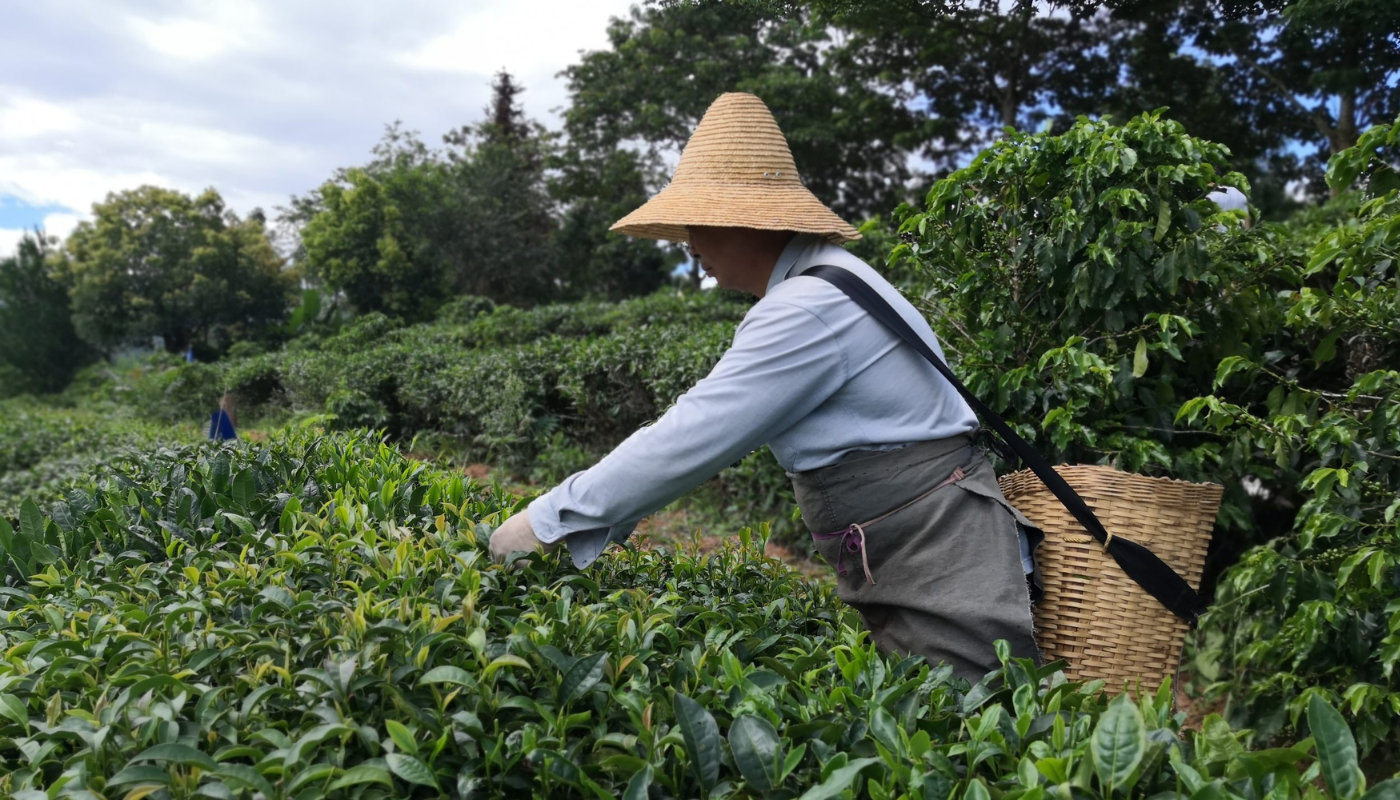There are endless ingredients available to brewers these days, from fresh fruits and herbs, to candies, salts, coffee, and more. Tea is a fascinating ingredient, but not often used by brewers. It can bring depth of flavors to nearly every style and the varieties in the tea realm bring unexpected character to the glass.
“I think a lot of teas go surprisingly well with beers,” says Jordan Schupbach, the director of brewing at Epic Brewing. “It goes well with beers, but it’s not something you see a lot of, and that’s too bad because it’s a way to get unique flavors into beers.”
He’s brewed beers with tea beers several times, often sour ales, but has played around with other styles as well. In a recent telephone conversation Schupbach recalled a firkin festival held by the brewery where they brewed a small batch of English Mild with Earl Grey tea that was so well received that it was scaled up and later canned.
“That style never sold like crazy, but it tasted really nice,” Schupbach says.
Teas are receiving a closer look these days thanks to an interest in the production and consumer reception of hard teas. While Twisted Tea, made by Boston Beer has been on shelves for more than 20 years it has renewed competition.
National brands in the non-alcohol space have recently entered the hard tea arena. This includes Arizona, Lipton, and Dunkin’, the donut chain. Brewers like Ohio’s Great Lakes have also entered the space.
Schupbach says Epic has entered into the hard seltzer realm as well with both black tea and green tea varieties.
As drinkers, accustomed to hard seltzer, look for alternatives and new avenues, this could be hard tea’s time to shine in the flavored malt beverage category.
But as an added ingredient to beer, tea still has a lot of runway ahead of it. Firsd Tea has been working with breweries like Epic, as well as Angry Chair, Hill Farmstead and others for a few years now to bring teas to the forefront that add depth and character to a multitude of styles.
Schupbach says Epic has played around with different ways of adding teas to its beers.
“We played around for a while trying on the hot side, and then using tea dry hopped cold extraction and that that works ok,” he says, but what we found works best is making a hot tea concentrate separately and then dosing a beer, and it comes out to about one to three pounds per barrel.”
He says that the brewed tea – just like how a person would do at home but on the larger scale – is pasteurized before going into the beer to prevent unwanted microbial growth.
Overall the process is “super-fast and adds a ton of flavor,” he says. “It’s a super easy ingredient to use in the brewery. Aromas are intuitive and you don’t have to overthink about how you’re going to use it to make a fun one.”
So, how do you pick the right tea for a beer style? Firsd Tea offers up some suggestions.
Jasmine green tea, with delicate floral aromas and flavors, gives pilsners “fresh, unique character.” For India Pale Ales, jade oolong, which is fruity and floral, boosts up the hop character. Sours gets boost from malty-sweet black tea. “Throw in some lemon myrtle- more lemony than lemon but with no citric acid,” suggests the company.
“Stretch your saison into new territory with the roasty, nutty character of shuixian oolong,” says Firsd Tea. You can find out more about their collaborations with brewers and tea ingredients by visiting the First Tea blog.
“It seems like there are a million different teas,” says Schupbach “you can really nerd out.”
He also points out that as far as ingredients go, tea is not exorbitantly expensive.
“You don’t have to be cheap, and it won’t break the bank,” he says.
